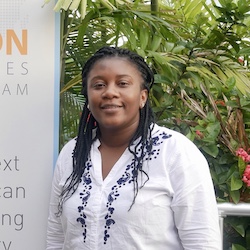Bio
Chenai Matshaka is a PhD student at the University of Pretoria in South Africa. She has worked in the human rights field in Zimbabwe and South Africa focusing on organized violence, torture, political violence, as well as migrant and refugee rights. Her research interests include transitional justice, memory, and conflict as well as tradition-based systems of justice.

